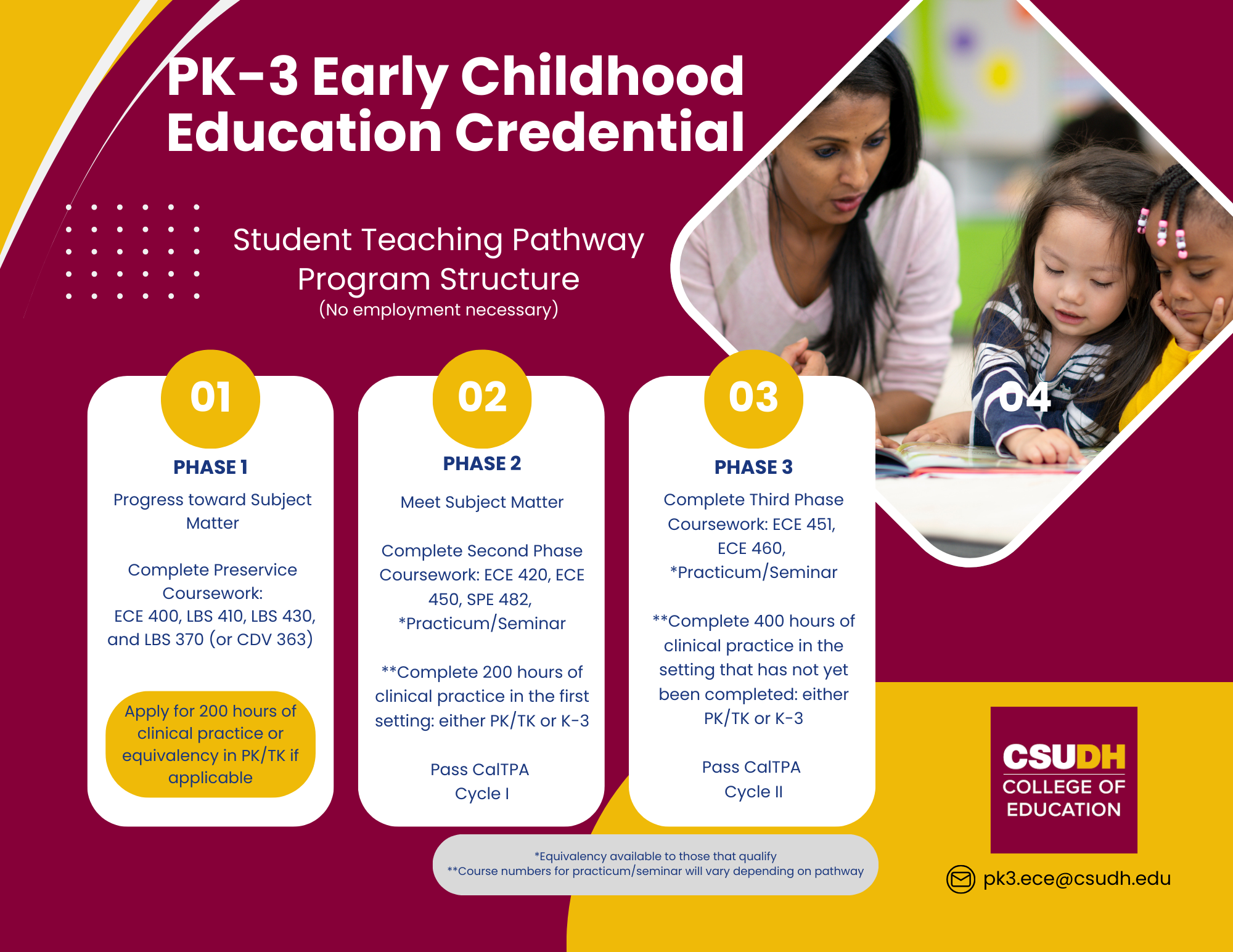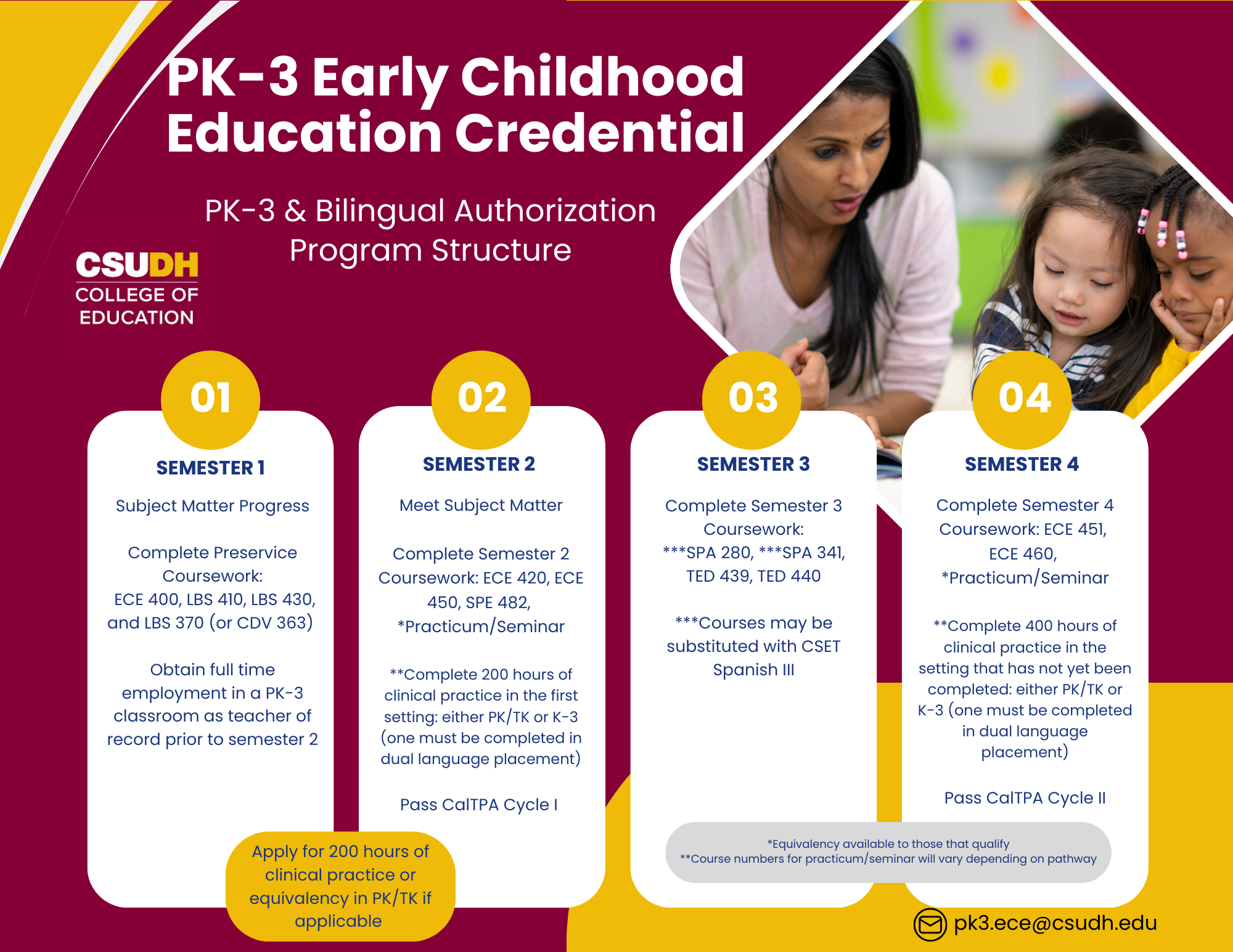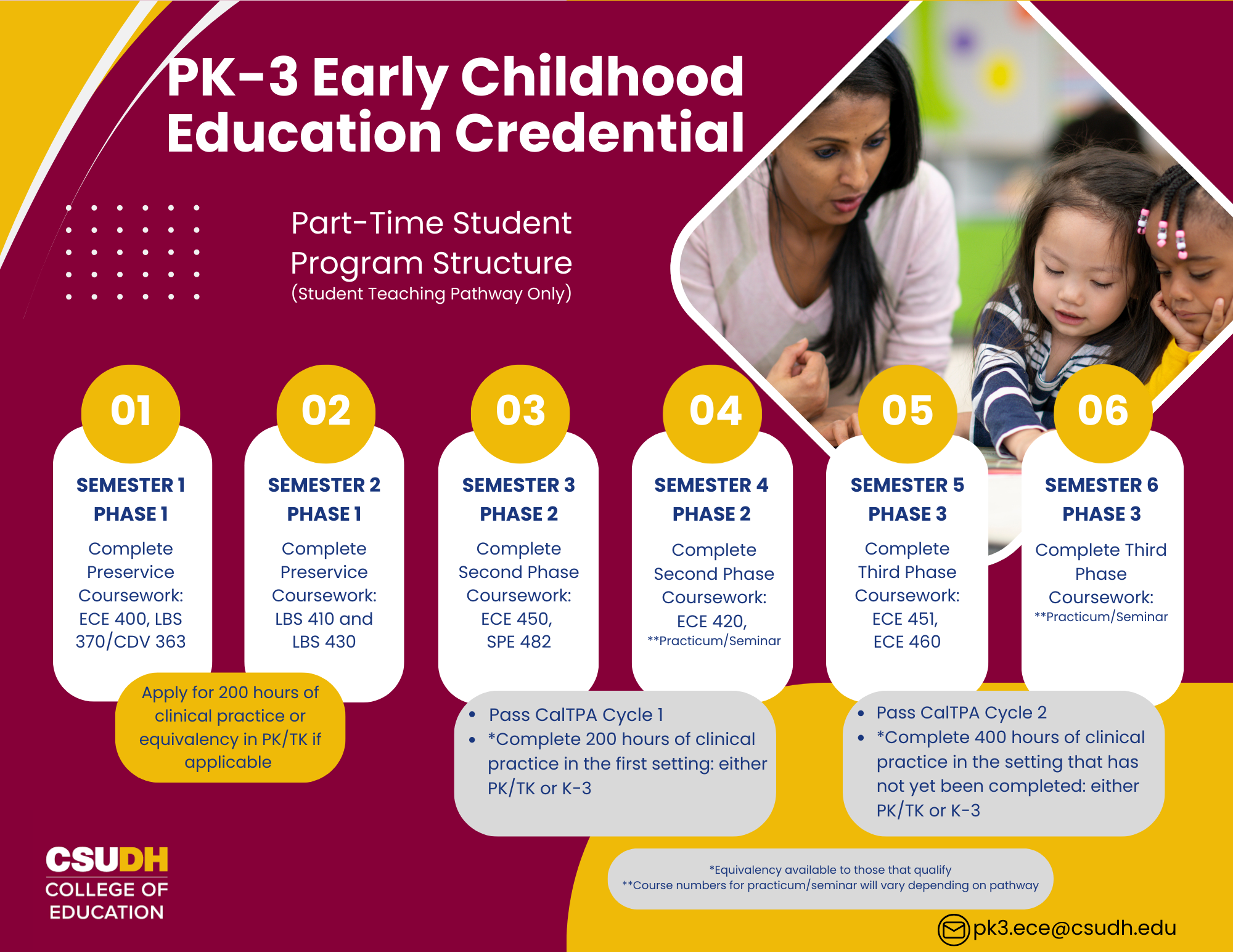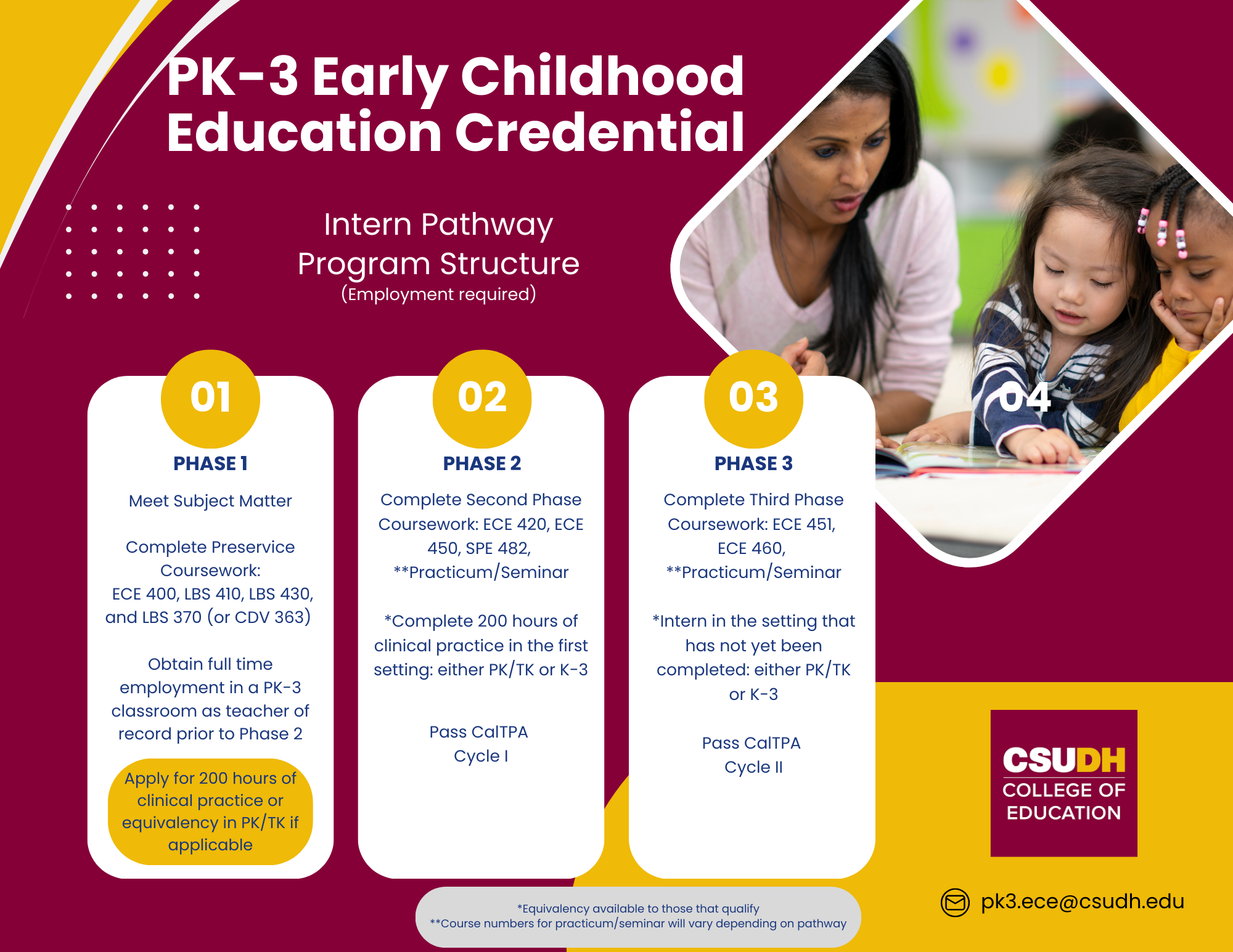Current Students
Latest News
Semester 1
Course Description
- ECE 400: Developmentally Appropriate Practices in Early Childhood Education (3). Course topics include play-based learning, classroom ecology, instructional planning, collaboration, funds of knowledge, and reflective practice. Students will develop an understanding of early childhood education principles and gain the skills to create engaging and effective learning environments for PK-3 students.
- LBS 430: STEAM for Young Learners (3). Science, Technology, Engineering, Arts, and Math (STEAM) for Young Learners introduces future pK-3 educators to developmentally-appropriate curricula and experiences. A focus is placed on equitable, critical, and accessible approaches that are student-centered and holistically integrated across disciplines.
- LBS 410: Early Language and Literacy (3). This course explores the development of emergent reading, writing, and language skills for young children ages three to five through a culturally sustaining and critical lens. Students will first study young children’s home language development through a sociocultural lens. They will then connect home language experiences to print literacy learning to create culturally sustaining learning experiences in the early childhood classroom. Topics will include the sociocultural approach to language development, tenets of critical emergent print literacy skills, elements of phonological awareness, and development of culturally sustaining curriculum in alignment with the best practices in early childhood education and the California Preschool/TK Learning Foundations.
- Candidates can take CDV 363 OR LBS 370
- CDV 363: Development in Diverse Contexts (3). The development of the individual identity along multiple dimensions of age, gender and abilities in the contexts of class, culture, and ethnicity. Issues of hierarchies, the development of prejudice and discrimination at individual and institutional levels.
- LBS 370: Multicultural Studies (4). Students will analyze how intersectional identities mediate K-6 schooling experiences, study critical cognitive learning theories, and explore pedagogical implications. Students will learn qualitative education research discourse, conduct and write qualitative research, and draw upon theory, empirical data, and write a developing statement of praxis.



